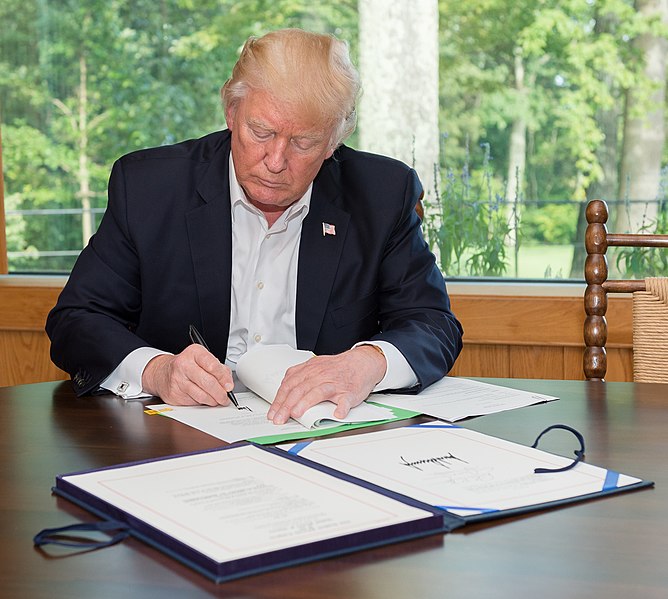On Tuesday, April 10, President Donald Trump signed an executive order that orders federal agencies to develop new work requirements and to help make current ones stronger to help low-income families receive the benefits they need.
The order gives these agencies 90 days to review all current policies dealing with work requirements, exemptions and waivers, in hopes of furthering the system to help bring people out of poverty.
The administration believes now is the best time to implement change due to the near record low of employment and the desire of businesses to hire. These changes would ultimately include more requirements to receive benefits, like working minimum hours dependent on family size, status of physical ability and much more.
These reforms help to ensure that tax dollars are being spent properly, so that people who are in need receive the aid they need, like Medicaid, food stamps and public housing.
Valerie Wilson, the director of the Program on Race, Ethnicity and the Economy at the Economic Policy Institute, says “Work requirements are inconsistent with the realities of poverty in America and are unlikely to provide any resolution…” this being because more than sixty percent of low income persons are employed.
Wilson believes the problem is not the difference between employed or unemployed, but the wages they are offered in that job. “People who are on public assistance and don’t work are not choosing between a six-figure salary or staying at home.” says Wilson.
Conservatives are in favor of this order, some referring to it as “Welfare Reform 2.0”, the first being an order President Bill Clinton signed during his presidency that helped aid low income households at the time.
However, some oppose the efforts, stating that this reform will only help low income families who have the ability to work, but will restrict access for families who do not have the capability of working, one of these opposers being Derrick Johnson the president and chief executive of the NAACP.
Some officials oppose statements that more than half of those on welfare are employed, and that these orders help drive those unemployed to jobs.
Some states have working requirements for receiving government aid, like Kansas, where work requirements for childless adults have helped reduce caseloads by seventy-five percent.
The executive order’s long term goal is to help families come from poverty, stating that the policies currently “trap recipients, especially children, in poverty”. This order is passed in hopes of, in the future, bringing people out of poverty.
Kelsey Fitzpatrick
Reporter


